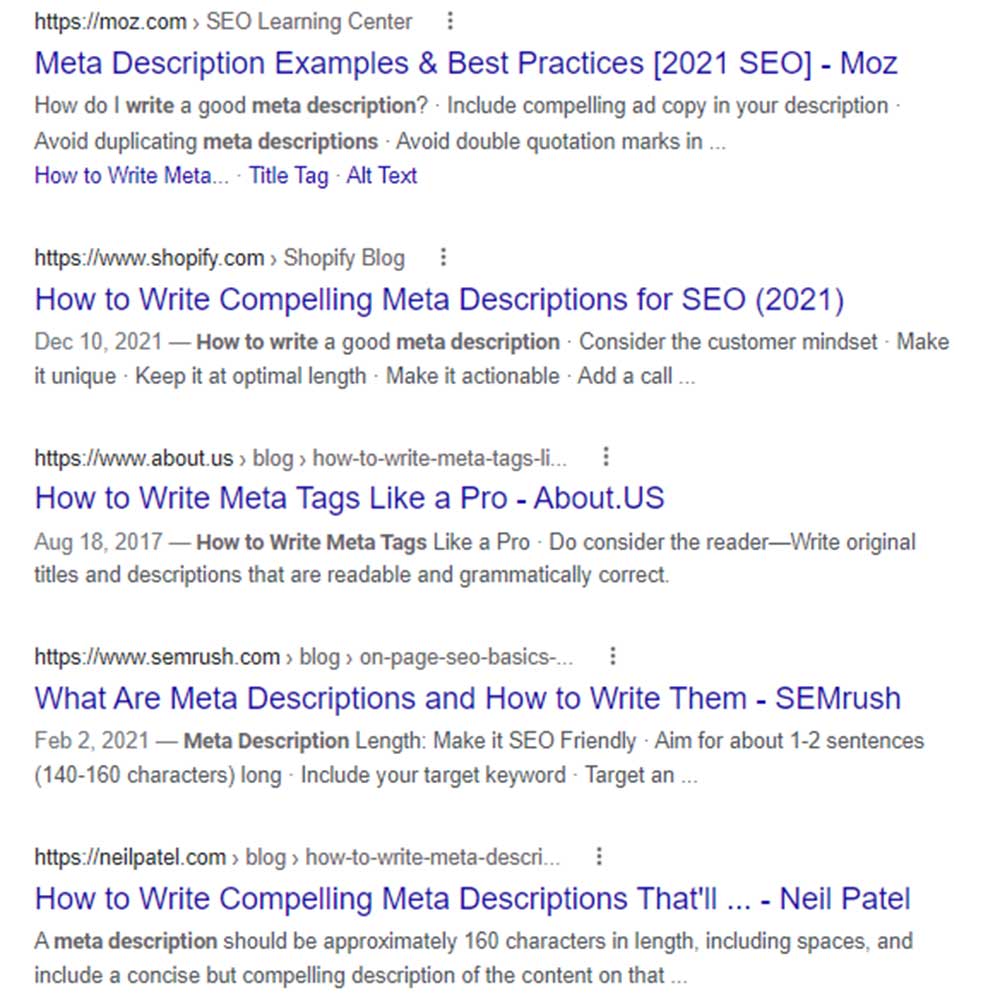It’s been a long time – years, probably – since Google stopped considering meta descriptions as ranking signals. But that doesn’t mean you shouldn’t spend some time working on them. There are three reasons for that, all related.
First – if you don’t write a good meta description, or worse yet, if you leave it blank, Google will write one for you. They might not think of it as a ranking signal anymore, but that doesn’t mean they don’t see it as important. And if they think it’s important, you should too.
Second – a good meta description will influence the CTR (click-through rate) from the SERP to your website. Users don’t just click on the top results anymore. They scan the results that are returned, read the title, the URL, and the meta description, and then make their choice. This means (in theory) that you have a decent chance of getting someone to click through to your content from anywhere on the page.
Third, and this is where the ranking stuff comes in, Google measures the time between when someone clicks on a link to your content and when they hit the back button to come back to the SERP so they can check out another link. It’s an internal bounce rate, that has nothing at all with the bounce rate you can see in Google Analytics and everything to do with your position on a SERP.
Let’s say that Google decides to place your content in the 8th [organic] position on the 1st page of the SERP. It’s not great but at least you’re on the 1st page. Averages say that in the 8th position, you’re going to get less than 2% of the available clicks, but what if you don’t? What if you get 4%? Or 6%? Google is going to see that, think that your content might be better than the content above it, and take notice. But…what if the people who clicked on your link don’t spend a lot of time on your website? They like your title and your description (which is why they clicked on your link) but when they get to your website, they’re disappointed with the content and “bounce” back to the SERP to make another choice? Google notices that too, but the high bounce rate will cause the algorithm to put downward pressure on your rankings.
So what constitutes a good meta description?
Everyone has their list. This is mine.
- Treat what you’re writing as if it’s a 2-sentence executive summary of the content. Be clear and concise about what the User is going to find on the page.
- Pay attention to the length. Search engines will typically display a maximum of 160 characters on the SERP. You can write more than that, but all the user will see is three dots indicating there’s more content. Stay between 140 and 160 to be on the safe side.
- Keep them unique. Many CMS system don’t allow you to create unique meta descriptions on category, tag or archive pages, but other than that, every page should have it’s onwn, unique description text.
- Use your most important keyword(s) in the text you’re writing. Remember, Google will add bold text anytime a keyword that the User put into their query appears in your description text.
- You’re writing for the User and not for the search engine, so keep pay attention to your grammar. What you’re writing should be easily readable and undertandable.
The bottom line
Don’t listen to the people who say meta descriptions don’t matter. They do, and the small additional effort necessary to do them right can pay off handsomely.

